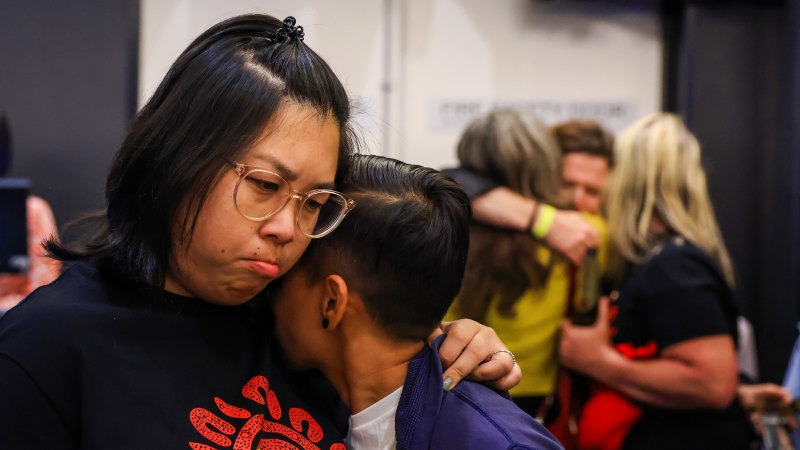Amidst the picturesque landscape of Melbourne, Australia, a significant development unfolded in October with the referendum proposing an Indigenous "Voice to Parliament" in the Australian Constitution. Unfortunately, this initiative faced a resounding defeat at the polls, where 60 percent of Australians opposed it.
Amidst the picturesque landscape of Melbourne, Australia, a significant development unfolded in October with the referendum proposing an Indigenous "Voice to Parliament" in the Australian Constitution. Unfortunately, this initiative faced a resounding defeat at the polls, where 60 percent of Australians opposed it. The referendum aimed to establish an advisory group advocating for Indigenous rights, addressing social and economic disparities. Despite this setback, 25-year-old Jordan Edwards, a member of Victoria's First Peoples' Assembly, remains pragmatic, emphasizing the importance of engaging Indigenous youth in conversations about treaty negotiations and self-determination.
Victoria's First Peoples' Assembly, initiated in 2020, stands as a separate entity from the federal government, focusing on advancing treaty negotiations with the state government. Unlike the national referendum, this state-level approach has garnered commitments from Victoria and Queensland. Edwards, also the Youth Voice convener, actively involves Indigenous young people in understanding and participating in the treaty process, which seeks agreements between traditional Indigenous groups and the government, fostering self-determination on issues like land use and resources.
Calls for a treaty between Indigenous Australians and government entities have echoed for decades. Victoria's state government committed to this process in 2018, set to be solidified in 2024. Edwards emphasizes the treaty's significance, especially for Indigenous youth, who constitute a substantial demographic. With a focus on rectifying the impacts of colonization, treaty negotiations hold promise for positive change, addressing issues such as out-of-home care, incarceration rates, and unemployment that continue to affect Indigenous communities.
In parallel to treaty negotiations, a truth and justice commission named Yoorrook has been established, delving into historical and ongoing injustices against Indigenous people. Yoorrook, meaning "truth," investigates the links between child welfare and adult imprisonment, aiming to create an official record of the impact of colonization and propose recommendations. The commission, chaired by Professor Eleanor Bourke, emphasizes the importance of truth-telling in building shared understanding and advocates for transformative change.
Esme Bamblett, an elected member of the First Peoples Assembly and the Elders' Voice convener, emphasizes the negative legacy of past policies, including the Stolen Generations. Indigenous communities in Victoria continue to grapple with the impacts on aspects like out-of-home care, incarceration rates, and unemployment. Yoorrook's recent report, Yoorrook for Justice, highlights the direct link between child welfare and adult imprisonment, stressing the urgent need for major reforms to protect First Nations' children from entering the child protection and criminal justice systems.
The Yoorrook for Justice inquiry, conducted in 2021, provided a platform for Indigenous community members to share personal stories of racism, mistreatment in the justice system, and historical family narratives. Truth receivers like Lisa Thorpe engage with these stories, acknowledging the raw and confronting nature of the experiences, which often involve trauma. These personal stories contribute to a truth-telling process that is seen as crucial for initiating healing and creating a platform for transformative change.
Despite the defeat of the Voice to Parliament initiative, Indigenous Australians are resilient in their pursuit of addressing the challenges of colonization. Initiatives such as the First Peoples Assembly, treaty negotiations, and the Yoorrook Justice Commission reflect a commitment to achieving justice, equality, and a fairer future for Indigenous generations. As the journey continues, individuals like Jordan Edwards, Esme Bamblett, and Lisa Thorpe remain hopeful that these initiatives will contribute to positive change and create a better life for Indigenous children and future generations.

